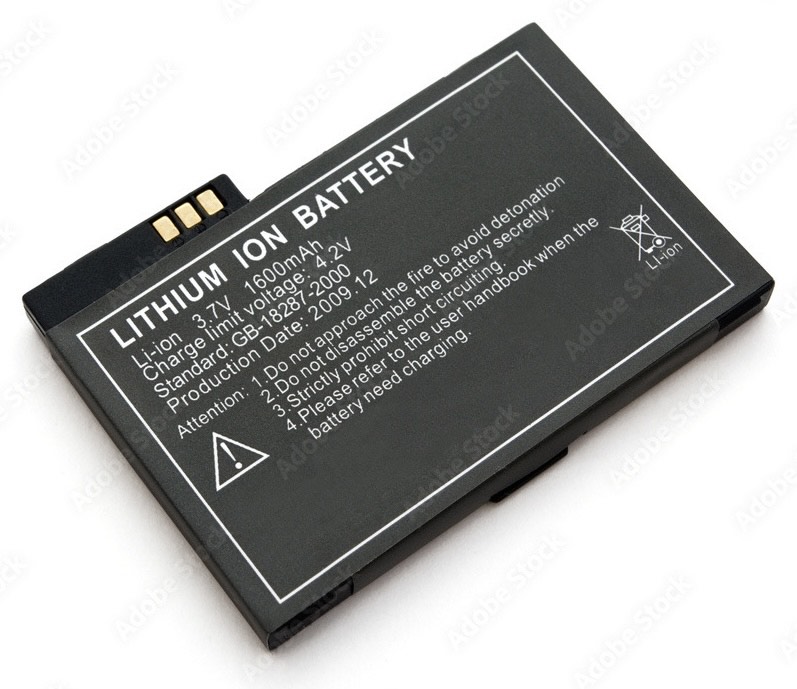Creativity Hubs Project Aims to Position UNC as Leader in Solid-State Battery Technology

This project will develop new solid-state polymer electrolyte materials that are non-flammable and more stable, improving the overall safety of lithium-ion batteries.
August 29, 2024 | By Dave Defusco
The University of North Carolina at Chapel Hill is embarking on a groundbreaking project that aims to position the school and State of North Carolina as leaders in lithium-ion battery research and development.
The project, “Advancing Solid Electrolytes for Next-Generation Lithium Batteries,” is supported by the North Carolina Collaboratory in partnership with the Office of the Vice Chancellor for Research’s (OVCR) Creativity Hubs program. The Creativity Hubs program was developed by OVCR’s Office of Research Development to assemble teams of researchers from diverse disciplines to tackle major societal challenges and leverage additional support from external sponsors.

Dr. Wei You, the project’s principal investigator and a professor of chemistry and applied physical sciences, will lead a team of experts to focus on three main objectives: non-flammable, solid-state polymer electrolyte materials; high-capacity carbon- and silicon-based electrodes; and the fabrication and testing of sustainable batteries. The project, he said, will lead to the establishment of the UNC-Chapel Hill Center for Energy Storage (UNC-CES) to advance safe and stable next-generation batteries.
“UNC-Chapel Hill has a long and successful history investing in energy research,” said Dr. You. “By the tireless efforts of faculty, we have created a healthy ecosystem that will serve as a hub of innovation in battery technology through the UNC-CES.”
UNC-CES is expected to attract top talent and foster collaborations with industry. Energy research has already garnered significant support in North Carolina, including a $15 million allocation made to the NC Collaboratory by the North Carolina General Assembly for next-generation energy research and development. A product of this investment, replacing PFAS-containing electrolytes in the batteries of electric vehicles with solid-state electrolytes, was recently highlighted in Nature Communications. In addition to providing grants to researchers across the state, the NC Collaboratory plans to help institutions recruit faculty with expertise in energy storage research, further strengthening UNC’s leadership in this field.

The lithium-ion Creativity Hubs award will bring together leading faculty, including Dr. Theo Dingemans, chair of the Department of Applied Physical Sciences who specializes in ionic composite materials; Dr. James Cahoon, chair of the Department of Chemistry who is an expert in the chemical synthesis of semiconductor nanomaterials; Dr. Megan Jackson, an assistant professor of chemistry whose lab is focused on renewable energy storage; and Dr. Frank Leibfarth, Royce Murray Distinguished Term Professor of Chemistry and an expert in polymer science. The team will be supported by the UNC Sustainable Energy Research Consortium, which includes Dr. Alexander Miller, the director and professor of chemistry, and Dr. Daniel Kurtz, project manager.
While lithium-ion batteries have revolutionized consumer electronics and are increasingly used in electric vehicles, they still face significant challenges. These include the environmental impact of mining metals, like cobalt and nickel, the use of flammable organic solvents, and the difficulty of recycling these batteries. The UNC project aims to address these issues by developing carbon-based, solid-state lithium-ion batteries that are safer and more sustainable than ones powered by liquid electrolytes.
“Current Li-ion batteries use flammable liquid electrolytes, which pose safety risks,” said Dr. Dingemans, a specialist in polymer chemistry. “This project will develop new solid-state polymer electrolyte materials that are non-flammable and more stable, improving the overall safety of lithium-ion batteries.”
The researchers will also work on developing new electrode materials that are more sustainable and offer higher capacity than current metal oxide electrodes. This includes exploring the use of silicon and graphene in anode materials, which could significantly increase the power and storage capacity of batteries. The new materials developed in the project will be used to assemble complete batteries, which will undergo rigorous testing to ensure they meet key performance metrics, such as energy density, capacity and safety.
As the demand for renewable energy continues to grow, so does the need for efficient energy storage solutions. Currently, renewable energy sources, like wind, solar and hydropower, account for only 20% of the U.S. electricity supply, but they have the potential to meet the country’s entire electricity needs many times over. The key to realizing this potential lies in developing advanced battery technologies that can store energy efficiently and safely.
“The Creativity Hubs project will not only advance lithium-ion battery technology,” said Dr. You, “but also position UNC and North Carolina at the forefront of the global energy storage revolution.”

